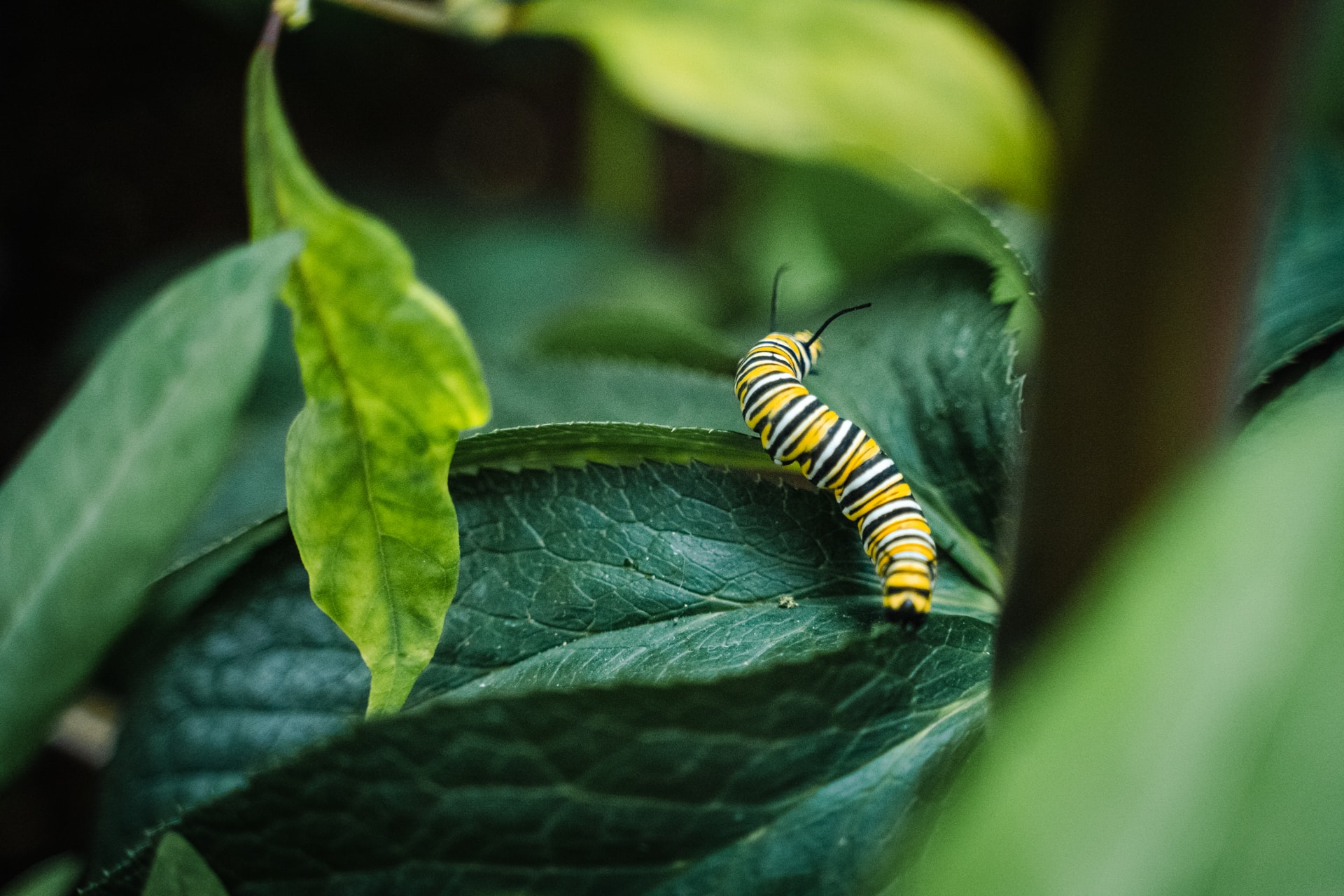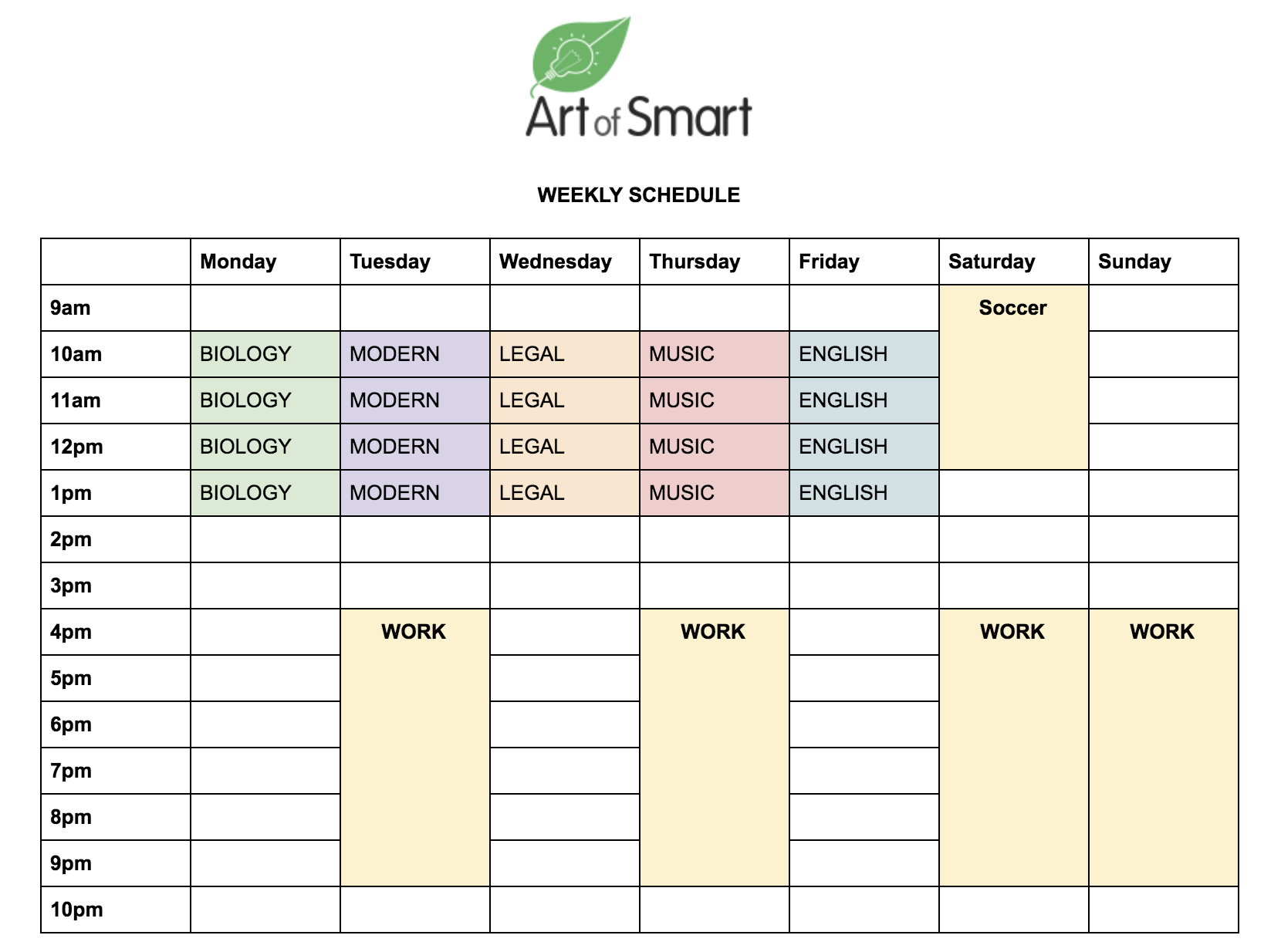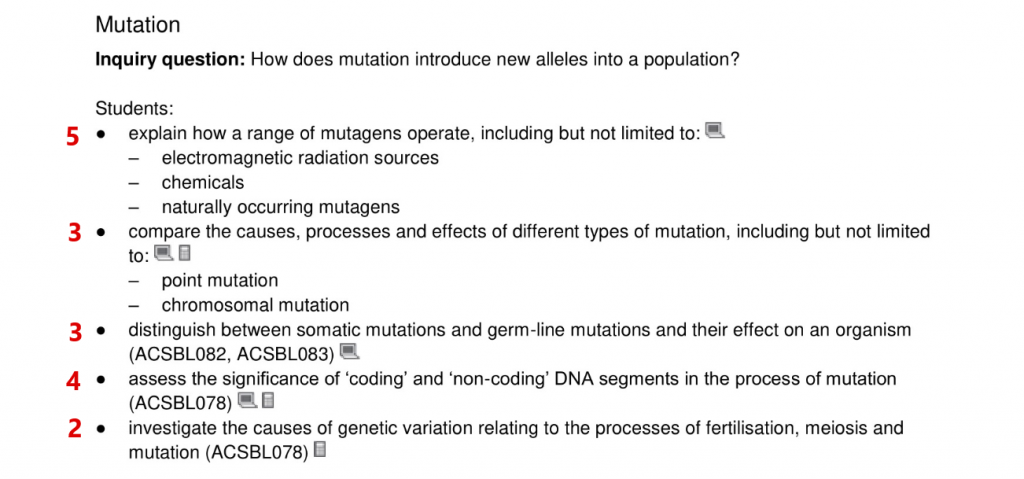The summer holidays are upon us! While this means a well-deserved break, it’s also the perfect time to get prepared for HSC Biology in Term 2 of Year 12 with an HSC Biology study plan for the holidays!
I know that sounds pretty boring in comparison to chilling out and enjoying the break, but don’t worry, our 6-Week Summer Holiday Study Plan doesn’t even involve studying every single day of the holidays!
Our HSC Biology study plan will take you through how to prepare for study, catching up on notes throughout the first term and planning ahead for Term 2 of HSC Biology!
So, what are you waiting for? Let’s dive right in!
Week 1: Preparation
Week 2: Catching Up
Week 3 & 4: Get Studying!
Week 5: Work One Week Ahead of Class
Week 6: Take a Break!
Week 1: Preparation
I think the key to succeeding in anything you do is to make sure you’re prepared. Plus, I know you’ll probably want to take your first week off school a bit easy and this is probably the easiest part of our HSC Biology study plan!
Step 1: When will you be studying?
Personally, if I don’t commit in advance to a particular time and day that I’m going to study, it’s not likely to actually happen. So the first thing you need to do is work out a rough study schedule and write it down!
Pro-tip: Writing down the times you’re committing to study makes you more accountable and more likely to actually study when you said you would!
Now, you can absolutely used every day of the summer holidays to study, but that’s a great way to get burnt out, and I actually don’t advise it! Instead, I suggest you should dedicate one day per week to a specific subject, and study for around 2 hours per day.
Pro-tip: I find the best time of day to get your 2 hours done is in the morning from 9am-11am. That means you’ve got it done and out of the way and can still enjoy your afternoon!
Here’s what that might look like:
Download your own study timetable for your summer holiday study plans below!
Download and Make Your Own Study Timetable Here!
It doesn’t really matter how you schedule your time, the most important thing is that you follow the schedule that you’ve made!
Step 2: Where will you be studying?
Now, this might not seem like a question you need to think about but this was a big issue for me!
I’m the type of person who just can’t get any productive and focused work done at home. I could do homework and practice for my Music performances at home, but that was about it.
I found that the key to my successful study during the HSC was getting out of the house and studying at the library!
Whether it’s at the library, at a local cafe or at home, pick a study space that suits you and that you can use every time you sit down to study. This will help you get into ‘study mode’ and tells your brain to focus when you’re in that particular spot!
Step 3: What do you need to study?
Sounds simple, right? Biology, of course!
Yes that’s right, but you can’t just open up your notes and re-read the first page you open up to.
The next step is to prioritise the content in order of what you’re most confident on to what you’re least confident on.
Here’s how to do it:
First, download and print out the HSC Biology Syllabus.
Next, go through each syllabus dot point and label it based on how confident you are on the content.
Rate it from 1 to 5, with 1 being “I don’t even know what this dot point means” to 5 being “I can get a Band 6 on this in my sleep!”.
Once you’ve rated each syllabus dot point, you need to prioritise the dot points and topics that you are least confident about, and leave the dot points and topics you’re most confident about for later.
Now you’ve probably only covered Maintaining a Balance so far in Term 1, so you will only need to work on those dot points for now!
And that’s it for the first week of the holidays! Let’s find out what to do in Week 2.
Week 2: Catching Up
Just because you’re expected to be 100% up to date on all work at the end of the year, doesn’t mean that is actually the case.
We get it, sometimes life gets in the way! Plus, it’s hard to catch up on missed work when you’re still learning new content.
That’s why the summer holidays are the perfect opportunity to catch up on any work you may have missed during the year.
Priority #1: Catching up on missed work
This means catching up on any class you might have missed or homework you missed (or maybe never got around to).
Message a friend to ask what the work was on the particular day or class you missed and what the homework does. If they’re not sure or can’t remember, you can always try emailing your teacher!
Spend some time catching up and making sure you understand the content you’ve missed.
HSC Together is a fantastic resource to use when catching up! It has thousands of FREE videos on every single HSC Biology syllabus dot point so that you can understand concepts and catch up!
Priority #2: Completing your study notes
Now that you’ve caught up on all of the HSC Biology work for Term 1, it’s time to make sure you’ve got a solid set of study notes. This allows you to consolidate your knowledge for Term 1 of Year 12 and go into Term 2 100% prepared!
What we usually see happen is students get into Term 2 without a set of good study notes, start learning content from Term 2 and neglect their study notes.
Then when half-yearlies come around in Week 6, not only are they behind on notes, they have no idea what they even studied in Term 1 and everything kinda falls apart!
Weeks 3 & 4: Get Studying!
Now you know when and what you’ll be studying during your HSC Biology study plan, it’s time to actually do it!
I recommend working on the syllabus topics in order, and similarly, work on the dot points within each topic in the order you marked them in Week 1 (so working from 1 to 5). This is the easiest way to ensure you’re spending enough time working on the right content!
Make notes and revise them using class notes and resources, textbooks and information you can find online.
Here’s what that might look like in practice:
Day 1
9am-10am: Work on the first dot point in Maintaining a Balance: Most organisms are active in a limited temperature range in the order you marked them in Week 1.
10am-11am: Work on the second dot point: Plants and animals transport dissolved nutrients and gases in a fluid medium, again in the order you marked them in Week 1.
Day 2
9am-10am: Work on the last dot point of Maintaining a Balance: Plants and animals regulate the concentration of gases, water, and waste products of metabolism in cells and in interstitial fluid. Again, in the order you marked them in Week 1!
10am-11am: Revise the three dot points of Maintaining a Balance, making sure you focus mainly on the dot points you’ve marked your confidence as 1 or 2.
Use Practice Questions to ensure you fully understand the content!
This is essential for HSC Biology as it’s the best way to make sure you firstly remember the content, and secondly, that you understand and can communicate the content you’ve learnt and remembered!
Luckily for you, we’ve put together a bunch of HSC Biology Practice Questions you can use to help you study, or better yet, learn how to write your own practice questions!
Week 5: Work One Week Ahead of Class
Over the last 8 years of interviewing 98+ ATAR students, the number one secret of their success is working one week ahead of class!
There are two reasons why this is an effective strategy:
Apart from never being behind on class content, this is firstly a unique way to learn and remember content as you are simply revising when your teacher covers it in class!
Secondly, because most schools are learning content right up until the week of assessments, being one week ahead means you give yourself a buffer week before assessments to revise, where other students are still stuck learning content for the first time!
So how do you work one week ahead?
Firstly, pull out your syllabus and identify what topics you’ll be working on first in Term 2. You might need to talk to your teacher to find out what topic this will be, but usually schools start Blueprint of Life directly following Maintaining a Balance.
Day 1
9am-10am: Work on the first dot-point from Blueprint of Life: Evidence of evolution suggests that the mechanisms of inheritance, accompanied by selection, allow change over many generations
Outline the impact on the evolution of plants and animals of:
- changes in physical conditions in the environment
- changes in chemical condition in the environment
- competition for resources
10am-11am: Work on the second dot point of the first topic:
Describe, using specific examples, how the theory of evolution is supported by the following areas of study
- palaeontology, including fossils that have been considered as transitional forms
- biogeography
- comparative embryology
- comparative anatomy
- biochemistry
Get out your textbook or use the internet to start teaching yourself this content based on the syllabus dot points. Make sure to start making study notes as well!
Remember, you don’t need to master these dot points or completely understand them at this stage. Working ahead gives you an opportunity to become familiar with the content before you learn and revise it in class, not an opportunity for you to master it all by yourself.
Week 6: Take a break!
This is probably the most important thing to do these holidays (which I’m sure is exactly what you wanted to hear!).
Next year will be a big year, and we see so many students who go too hard during Term 1, the summer holidays and Term 2 and then hit a wall and burn out before the end of the year.
So make sure you schedule in some time to relax and have fun these holidays in your HSC Biology study plan, and head into Term 2 physically and mentally prepared to perform at your best for the next 3 terms!
Are you looking for a tutor to help you ace HSC Biology?
We pride ourselves on our inspirational coaches and mentors!
We offer tutoring and mentoring for Years K-12 in a large variety of subjects, with personalised lessons conducted one-on-one in your home, online or at one of our state of the art campuses in Hornsby or the Hills!
To find out more and get started with an inspirational tutor and mentor get in touch today!
Give us a ring on 1300 267 888, email us at [email protected] or check us out on Facebook!
Isabella Hanley loves science. She loves science so much she’s making it her career. While completing her Bachelor of Medical Science she is also a Coach and Digital Content Manager at Art of Smart. She is super passionate about sharing her knowledge on surviving the HSC since completing the HSC herself in 2014. In her downtime she enjoys Netflix binging like a pro, singing in the shower and hanging out with her awesome rescue dog, Ruby.





